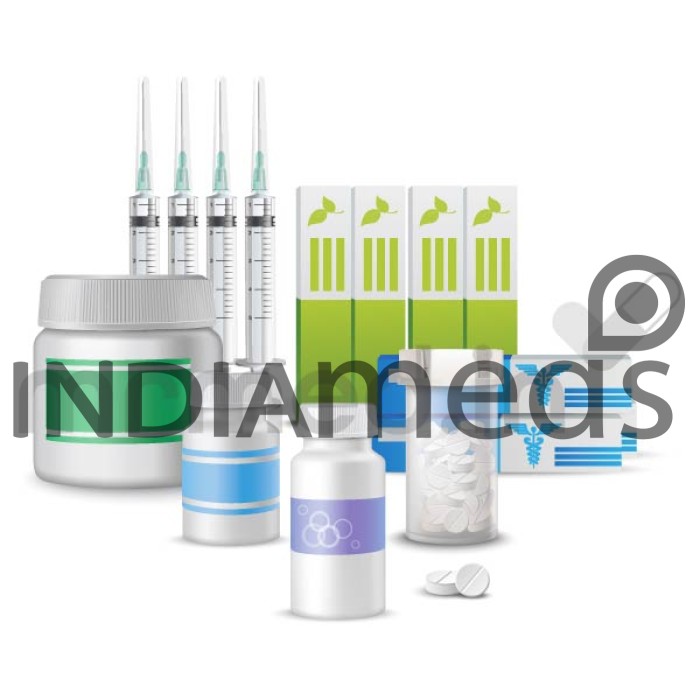Rojuzda 75mg injection contains an active component as luspatercept. It is a medication that has been developed for the treatment of certain types of anemia. Specifically, it treats anemia associated with two rare blood disorders: beta-thalassemia and myelodysplastic syndromes (MDS). Beta-thalassemia is an inherited blood disorder that affects the production of hemoglobin, the protein responsible for carrying oxygen in red blood cells. Myelodysplastic syndromes (MDS) are a group of bone marrow disorders characterized by ineffective blood cell production. One of the primary benefits of this medication is its ability to reduce the frequency of blood transfusions in patients with anemia associated with beta-thalassemia and MDS.
Rojuzda 75mg injection should not be used in individuals who have a known hypersensitivity or allergic reaction to the medication or any of its components. It may increase the risk of blood clot formation. Suppose you have a history of blood clots or are at an increased risk for clotting disorders. In that case, your healthcare provider should carefully evaluate the potential risks and benefits of Rojuzda 75mg injection treatment. Tell your healthcare provider if you have any other medical conditions or are undergoing treatments before taking it.
- Beta-thalassemia
- Myelodysplastic syndromes
Therapeutic Effects of Rojuzda 75mg Injection
Pregnancy
Rojuzda 75mg injection poses risks to a developing fetus and may cause harm during pregnancy.
Breast Feeding
The safety of Rojuzda 75mg injection during breastfeeding is not well established, and it is recommended to exercise caution and consult a healthcare professional before using this medication while breastfeeding.
Lungs
If you have a pre-existing lung condition or any concerns about the impact of Rojuzda 75mg injection on your respiratory health, it is crucial to discuss these concerns with your healthcare provider.
Liver
Individuals with pre-existing liver conditions or underlying liver diseases need to consult a healthcare provider before starting treatment.
Alcohol
It is generally recommended to avoid consuming alcohol while taking Rojuzda 75mg injection. Alcohol can interact with theophylline, one of the components of this medication, and potentially increase the risk of side effects.
Driving
Rojuzda 75mg injection may cause side effects that can impair driving ability and overall alertness. Common side effects include dizziness, headache, and tremors, affecting coordination and reaction time.
Serious:
- Blood clots
- Hypertension (high blood pressure)
- Stroke
- Heart attack
- Venous thromboembolism (blood clot in a vein)
- Thrombosis (blood clotting disorder)
- Embolism (blockage of blood vessels by a clot or other substance)
- Hemorrhage (excessive bleeding)
- Allergic reactions (rare, but may include rash, itching, swelling, severe dizziness, or difficulty breathing)
Common:
- Headache
- Fatigue
- Dizziness
- Nausea
- Joint pain
- Bone pain
- Muscle pain
- Injection site reactions (e.g., pain, redness, swelling)
Rojuzda 75mg injection is not approved for children, as its safety and efficacy have not been established in pediatric populations. It is primarily indicated for adult patients with specific medical conditions.
Rojuzda 75mg injection may require dose adjustment or close monitoring in patients with kidney disease. Your healthcare provider will assess your kidney function and determine the appropriate dose or any necessary precautions based on your circumstances.
The use of Rojuzda 75mg injection in conjunction with chemotherapy or radiation therapy has yet to be extensively studied. It is important to discuss your treatment plan with your healthcare provider to determine the most appropriate approach and any potential interactions or effects.
Rojuzda 75mg injection should be used cautiously in patients with a history of cardiovascular disease, as it may increase the risk of cardiovascular events such as heart attack or stroke. Your healthcare provider will assess your cardiovascular health and determine the suitability of this medication treatment.
Patients with a history of bleeding disorders should be closely monitored during Rojuzda 75mg injection treatment due to the increased risk of hemorrhage. It is important to discuss your medical history with your healthcare provider to determine the appropriate precautions and monitoring plan.
Rojuzda 75mg injection may affect fertility in both males and females. If you have concerns about fertility or family planning, discussing this with your healthcare provider before starting treatment with Rojuzda 75mg injection is important. They can provide guidance and recommendations based on your circumstances.
Molecule name: Luspatercept | Therapeutic class: Hematopoietic agent |
Pharmacological class: Erythroid maturation agent
| Indications: 1. Beta-thalassemia 2. Myelodysplastic syndromes |





